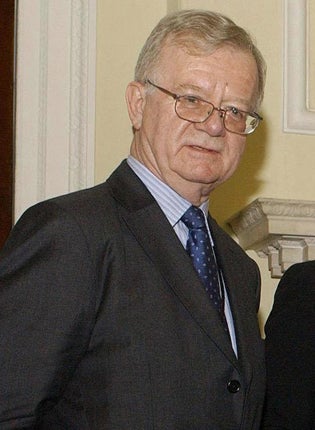Chilcot backs public hearing on Iraq

The chairman of the Iraq war inquiry has told Gordon Brown it is "essential" that as much of the hearing as possible should be in public.
Sir John Chilcot also said evidence may be given under an "undertaking" of truthfulness and he will discuss the format of the inquiry with opposition party leaders and MPs. A number of senior public figures have said the inquiry should have the right to issue subpoenas for witnesses and that they should give their testimony under oath.
The Independent revealed last week that senior military commanders, including the former head of the Army Sir Mike Jackson, and Lord Butler and Lord Hutton who had carried out previous inquiries related to the Iraq war, opposed the Government's attempt to hold the hearings behind closed doors. Others who had pressed for an open inquiry had included the former prime minister Sir John Major.
Tony Blair was reported to have urged Mr Brown to keep the hearings secret to avoid them becoming "a show trial" for himself. The Prime Minister is due to face a Commons debate tomorrow on a Conservative motion that evidence given to the Iraq inquiry should be heard in public "whenever possible" and Labour backbenchers had warned that he may face a defeat such as the one on the rights of Gurkhas to settle in this country, unless he climbed down on this issue.
However, Sir John said that the inquiry may take longer than expected. A "significant part", especially in the early stages, would be taken up with analysis of the vast quantities of documentary evidence related to the build-up, conduct and aftermath of the invasion stretching over seven years.
"By definition, that part of the process cannot be conducted in public sessions," he noted. "The results of that examination and analysis will, however, be crucial in guiding the selection of witnesses and the detailed questions that will then need to be answered.
"I expect our report will publish all the relevant evidence except where national security considerations prevent that."
Mr Brown has been accused of trying, in his attempt to keep the inquiry private, to avoid embarrassment for Labour in the run-up to a general election. The report, by the proposed timescale, would have arrived after the election.
The inquiry was due to start next month. However, the indication by Sir John that the initial period will be taken up with examining documentation means that the public stage of the hearing is likely to begin in the run-up to the election campaign.
But Sir John appeared to play down the prospect of an interim report, following calls for the inquiry to publish first its findings on the run-up to the war. "While I do not rule out the possibility, it seems to me clear that the causes and effects of particular phases of these events cannot simply be divided up so as to separate clearly one period from another," Sir John said.
Join our commenting forum
Join thought-provoking conversations, follow other Independent readers and see their replies
Comments
Bookmark popover
Removed from bookmarks